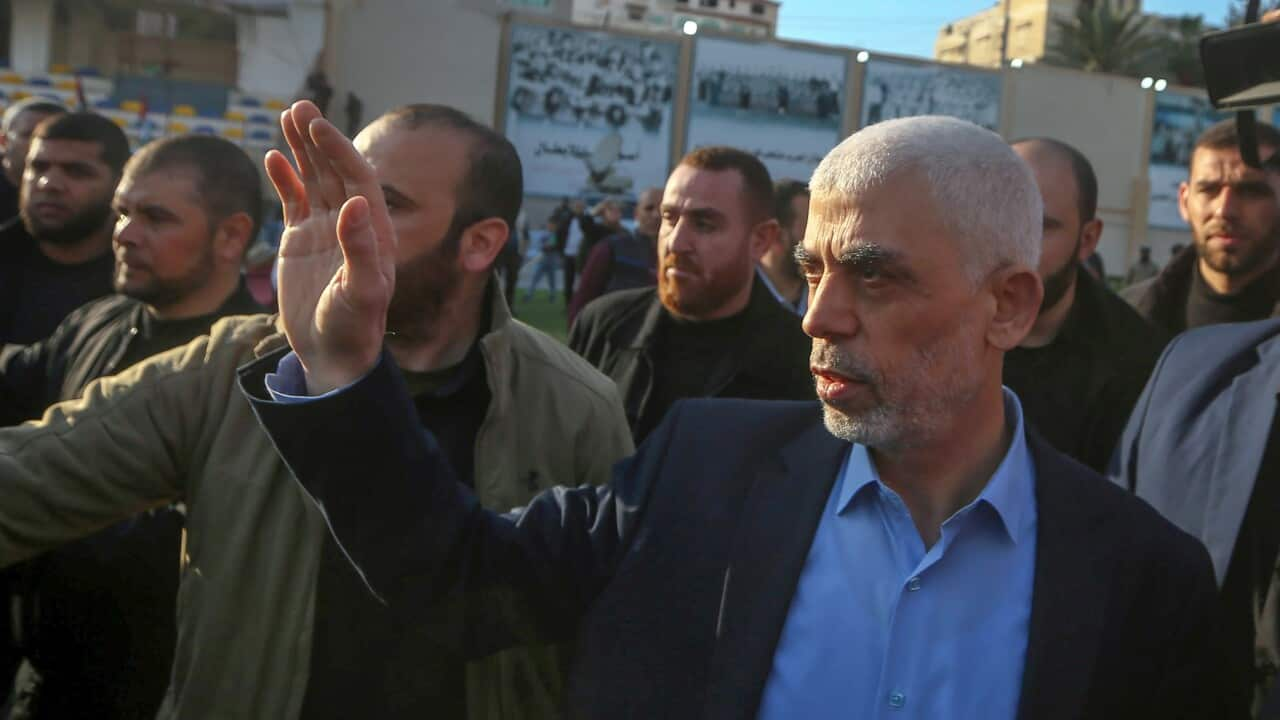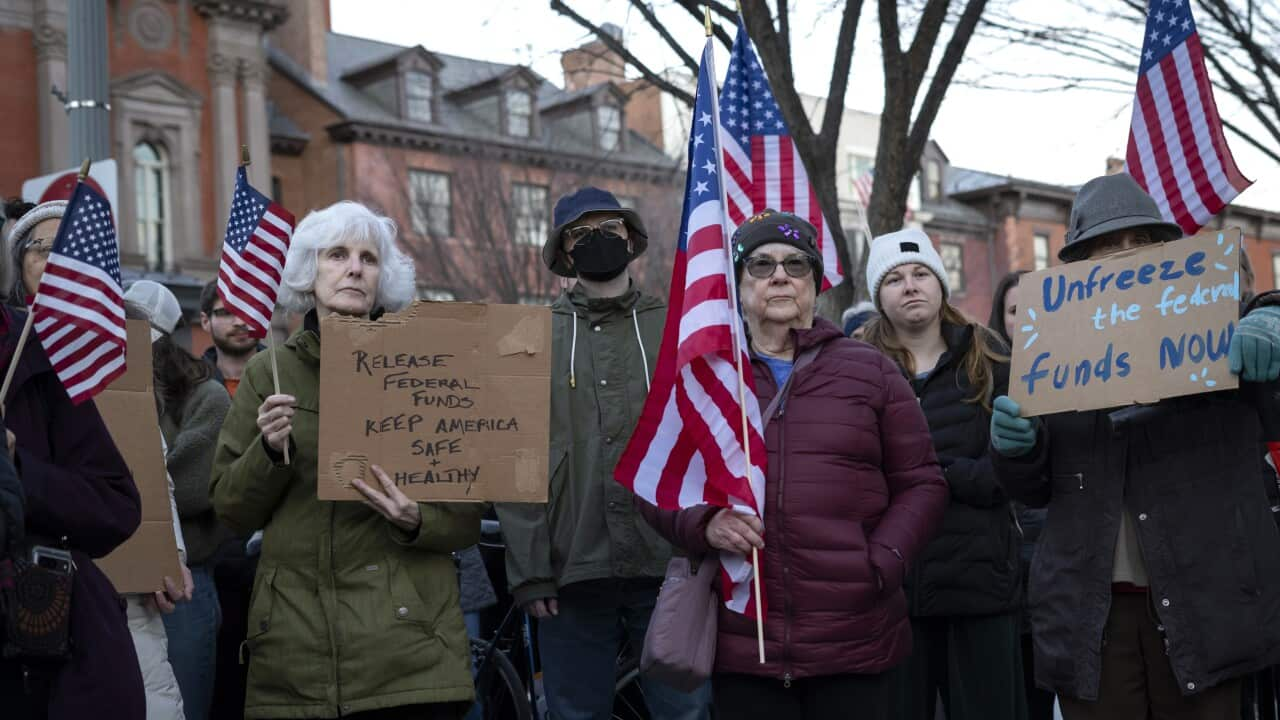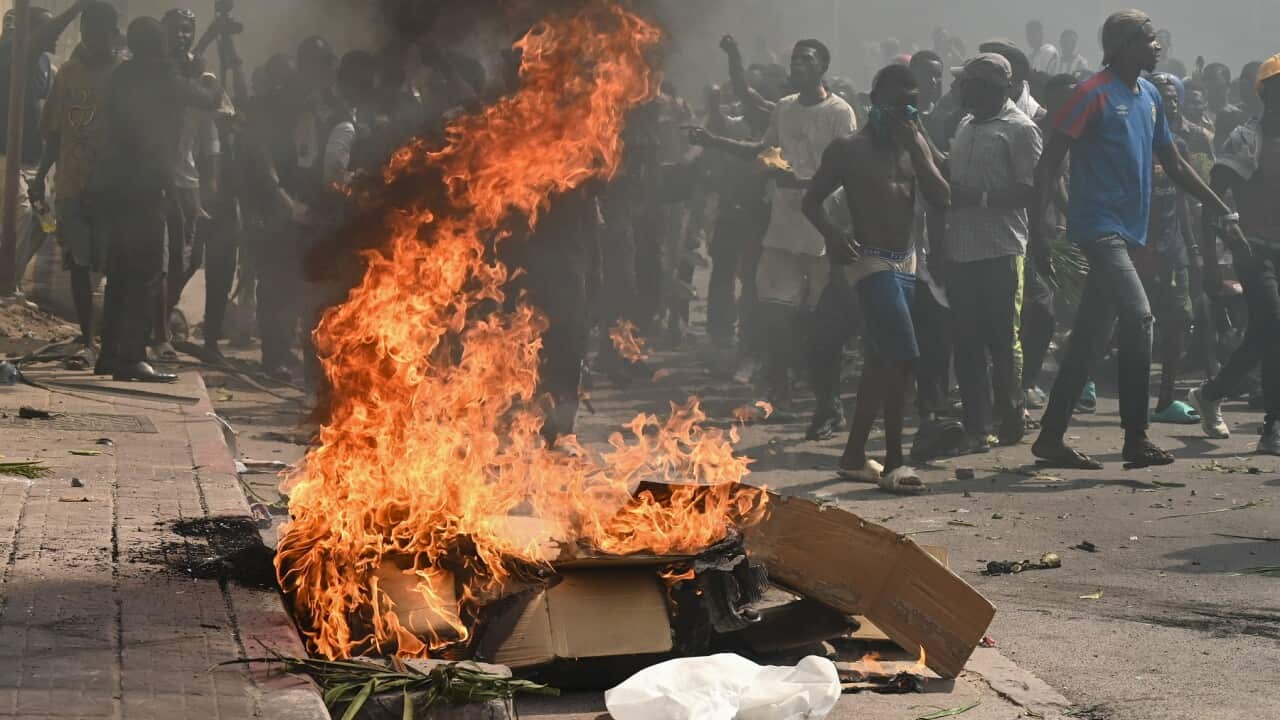Since October 7, Yahya Sinwar has been in the sights of Israel as one of the major architects of the attack.
Now, Israeli Prime Minister Benjamin Netanyahu says the newly appointed Hamas leader has been killed in Gaza.
"Today the mastermind of this day of sheer evil is no more. Yahya Sinwar is dead. He was killed in Rafah by the brave soldiers of the Israel Defence Forces."
Military spokesman Rear Admiral Daniel Hagari says they believe Sinwar came above ground from where he had been hiding for some time, in order to escape further north.
The killing appears to have been a coincidence, with troops running across him unknowingly, only to discover afterwards that a body in the rubble was Israel’s most wanted man.
But Hagari says it makes no difference.
"For the past year, Sinwar tried to escape justice. He failed. We said we would find him and bring him to justice, and we did it.”
The announcement has prompted some to protest.
These Jordanians have demonstrated near the Israeli embassy in Amman in support of Sinwar.
“We pledge allegiance to you, Sinwar”.
But Sinwar's death has also brought celebrations, in Israel and elsewhere.
British Prime Minister Keir Starmer has said the UK will not mourn the Hamas leader.
US President Joe Biden has praised the killing as...
"A good day for the world."
While European Council President Charles Michel says it's not a surprise.
"We got this information when we were in the meeting. I take note and I can tell you that, indeed, we know that this person is responsible for an immense suffering."
Australia's leaders have also reacted.
In a statement, Prime Minister Anthony Albanese has called Sinwar - an enemy of the Israeli people and an enemy of peace-loving people everywhere, while Opposition Leader Peter Dutton has said the world was safer following Sinwar's death.
Sinwar was chosen as Hamas’s top leader in July after his predecessor, Ismail Haniyeh, was assassinated in an apparent Israeli strike in the Iranian capital of Tehran.
Israeli leaders like Netanyahu see Sinwar's killing as a further settling of scores - but also as a chance for Hamas to surrender.
"This war can end tomorrow. It can end if Hamas lays down its arms and return our hostages. Hamas is holding 101 hostages in Gaza, who are citizens of 23 countries. Citizens of Israel, but citizens of many other countries. Israel is committed to doing everything in our power to bring all of them home, and Israel will guarantee the safety of all those who return our hostages. But to those who would harm our hostages, I have another message: Israel will hunt you down and bring you to justice."
That's the hope of many others, too.
Amit Solvi is the chairperson of the Kibbutz Be'eri, an Israeli community located just four and a half kilometres from the Gaza Strip.
It was ravaged in the October 7 attack, with more than 130 people from the community killed and 32 hostages taken to Gaza.
Solvi also sees the death of Sinwar as an opportunity for Israel to negotiate a solution to the conflict.
"Between us and between the region, between Qatar and Egypt, Israel, Lebanon, I don't know where, I don't know whom. But this is an opportunity that has to be taken in both hands and not let it slip away."
While the US sees the death of Sinwar as a major achievement, they've also distanced themselves from the operation as well.
Major General Patrick Ryder is the Pentagon spokesman.
"This was an Israeli operation. US forces were not directly involved... We've had a small number of special operations forces that have been advising the Israelis on hostage recovery efforts. And again, as the president's statement highlighted, that included working side by side with their Israeli counterparts to help locate and track Sinwar and other Hamas leaders hiding in Gaza who've been holding people to include Americans hostage since October 7th last year."
The impact of Sinwar's death remains unclear.
Treasurer Jim Chalmers has told ABC Radio National that the Australian government hopes Sinwar's death is a turning point.
"We don't mourn for one second the death of a terrorist leader, but we do mourn his victims... And we hope that his death helps and hastens bring an end to the war, because we want to see a ceasefire, we want to see humanitarian aid get in and we want to see his hostages released."
Joe Federman from the Associated Press says it's certainly a huge blow.
"Sinwar was a strong leader and most of the group's leadership has been wiped out during during the war, as well as many, if not most of its fighting forces... Hamas has not yet commented. It will now have to make a decision, will have to choose a new leader, and it will have to decide whether it wants to seek some sort of deal or whether it wants to keep on fighting."
This pro Sinwar protester in Jordan, Abdel-Raheem Srour, says his death is not the end.
"Even if he is assassinated, Hamas will give birth to others and the Palestinian revolution will give birth to others. There will be a hundred like Yahya Sinwar in the face of this Israeli tyrant who wants to exterminate this people and forcibly displace them from their lands. The people will not leave, and the leader Sinwar has built an organisation that will not end with his death. The leaders will create new leaders. Yahya Sinwar has prepared a hundred leaders like him."
The United Nations remains cautious, and uncertain if this development will improve prospects for a ceasefire.
But Deputy United Nations spokesman Farhan Haq says they want to see an end to hostilities.
"Our message has not changed. We have wanted the fighting to be halted. We have wanted civilians to be protected. We have, as I just mentioned, wanted the release of all of the hostages. And we've wanted improved humanitarian access through Gaza at a time when, as I said at the start, the risk of tremendous malnutrition and of famine are once again alarming."













